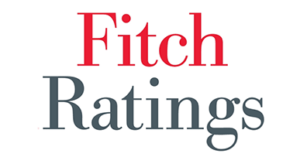Business News, Strategy, Finance and Corporate Insight
Jaipur-based digital marketing and SEO consultancy firm, SamBlogs, founder Vikas Singal has become a recognized game changer in digital marketing. His on-point digital marketing strategies and professional approach have been the key factors for making this man and mind take over the digital marketing space as a leading influencer.
Business approaches to customers have tremendously shifted over the years. Even traditional marketing practices have taken a backseat to new digital marketing approaches. From being a norm for a successful business to attracting crucial growth opportunities, be it in the form of profitable business exposure or more sales, digital marketing tools offered by leading marketing professionals such as Vikas Singal’s SamBlogs have become the need of the hour.
As a zealous and certified digital marketing expert and influencer, Vikas is trained in numerous aspects of digital marketing, including social media, paid media, content, search, design, and more. He uses a combination of thoroughly analyzed and cutting-edge digital marketing approaches to expand the brand awareness of modern-day businesses. Thus, helping new-generation and traditional marketing dominant companies make the most of committed administration, leisure campaigns, and insightful substance information to generate organic traffic.
Vikas Singal’s SamBlogs was recently recognized by a reputed market research firm in India, Business Mint, as the “Best Emerging SME”. The firm holds expertise in top-notch digital marketing services for enabling small businesses, brands, individuals, and startups to acquire positive business outcomes for exponential growth in various fields.
During the past ten years, Vikas has spent numerous dedicated hours developing a deep understanding of the swiftly evolving virtual marketplace. The experience of working with thousands of clients at a personal and professional level enabled him to frame precise digital agency services at SamBlogs, such as SEO services, marketing on social media, link building, copywriting, content marketing, and keyword targeting, amongst others.
“Our well-versed team at SamBlogs understands how to actively build some of the most successful digital marketing campaigns to aid businesses in achieving near to hundred percent satisfactory results. Such digital marketing strategies aid businesses to eventually increase their return on investment and make the most of their marketing campaigns,” says Vikas.
His company SamBlogs serves clients not only in India but also in states such as Los Angeles, Boston, San Diago, California, Chicago, Miami, and Miami, amongst others in the USA. To ensure his clients avoid making the wrong turns to lead to the path of exponential growth and success, they offer mindful digital marketing guidance within their digital marketing budget.
The company’s founder, Vikas Singal, is an engineer by profession. In 2006, Vikas completed his B.Tech degree in mechanical engineering. His job at ITC limited was implementing growth strategies in the food division, but he moved back to Jaipur in 2010 to pursue his passion. He didn’t have the knowledge and expertise in SEO then, but he was determined, and through continuous learning, he became a professional SEO consultant.
He founded SamBlogs in 2013 and helped it cross 1 million USD in sales by the end of last fiscal year. As a company mentor, the digital marketing influencer has also been helping the company win many national SME awards.
Articles under ‘Fortune India Exchange’ are either advertorials or advertisements. Fortune India’s edit team or journalists are not involved in writing or producing these pieces.
https://www.fortuneindia.com/enterprise/vikas-singal-the-man-and-the-mind-taking-over-the-digital-marketing-space-as-an-influencer/109273




















